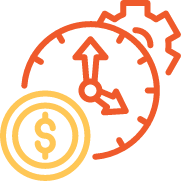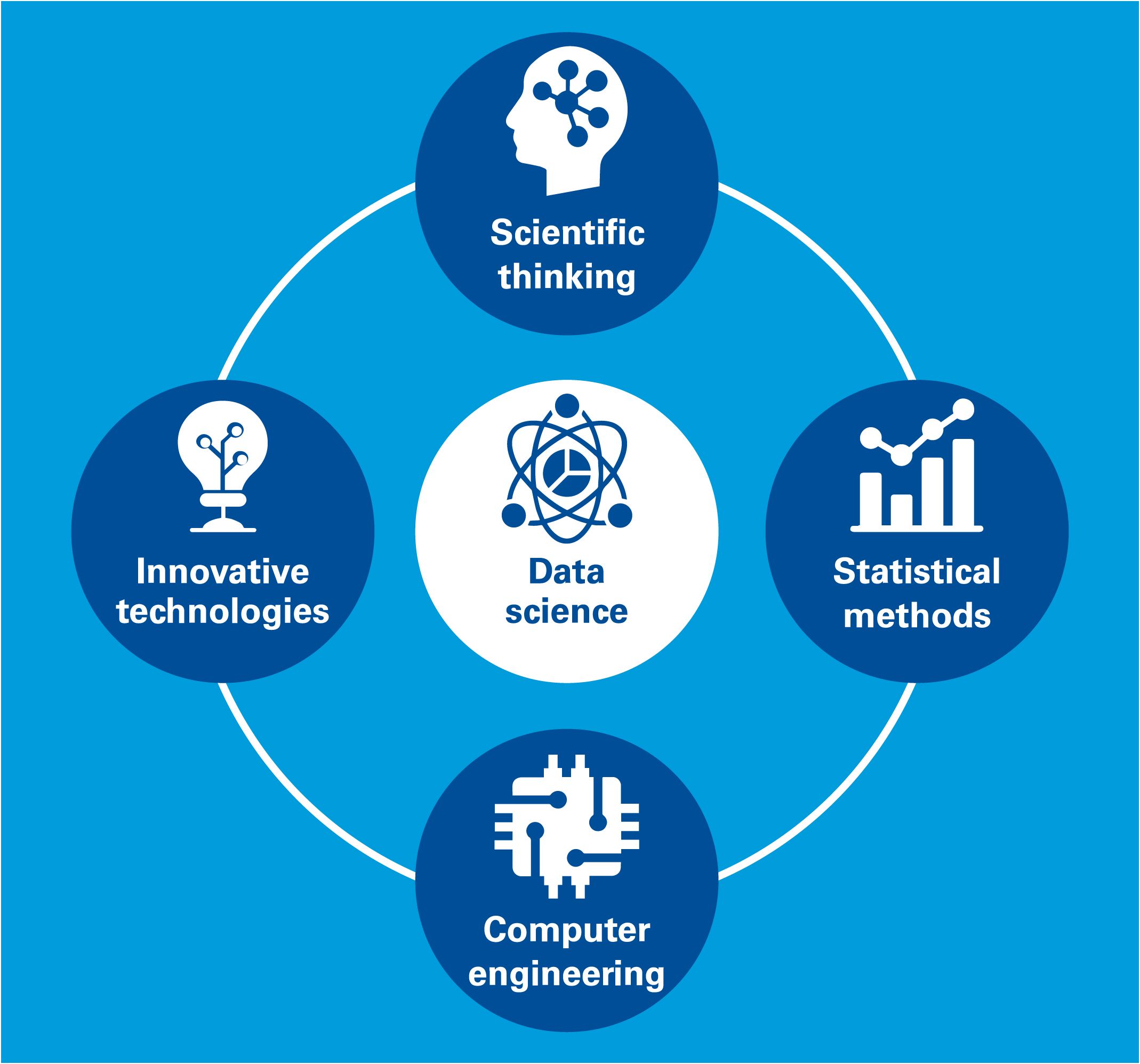Data Scientist in Malaysia : Salary has been answered.
| Data Science | November 11th, 2021 | by Harry Lim
Since we began offering Data Science webinars and workshops, at least one person in the audience has asked us, "How much does a data scientist in Malaysia earn?"
We appreciate that this is a highly practical topic, particularly for individuals who are considering data science as a career option.
As corny as it may seem, if you are solely doing it for the money, you will burn out very quickly. So, before we tell you how much a data scientist makes, let's go over what a data scientist does and what this field has to offer in terms of career opportunities.
What is a Data Scientist and what does it entail?
More than being a data scientist, there are many other roles in the area of big data, such as data analyst, data engineers, and so on. So, what exactly does a data scientist do?
Consider a data scientist to be more of a manager, in charge of directing your team to analyse the large amount of data acquired and transform it into actionable insights that will help the business develop.
So, in addition to concentrating on the execution and technical aspects of the work, it's critical that you have excellent organisational skills to see projects through, as well as outstanding communication skills to lead the team and serve as an adviser to your stakeholders based on the data gathered.
If you're curious about what a data analyst or data engineer performs, check out the infographic below:
Analyst vs. data scientist
Data engineer vs. data scientist
What are the prospects for a data scientist's career?
As we go further into this data age, many individuals are exploring a career in data science since it seems to be a promising path for success.
The beautiful thing about studying data science course malaysia is that it doesn't need you to ditch everything you've been learning or leave your current industry to work somewhere else. Many individuals may go into data science if they are enthusiastic about what they do and want to acquire additional insights from the data they already have.
If you operate in the hotel industry and want to learn more about what keeps clients coming back and what keeps them away, you can gather the essential data and analyse it to solve your everyday challenges. As a result, mastering data science in this circumstance can help you create a completely new skill set while also improving your worth as a corporate asset.
However, there are two basic sorts of data scientists, Type A and Type B, for the sake of analysing the career prospects of someone with a background in data science. The type A data scientists (think "Analysis") make up the vast bulk of data scientists. These individuals are regarded for having extensive understanding of the business in which they operate, and they often do analytical work in order to get insights that will assist the company.
Type B data scientists, on the other hand, are the traditional programming geeks (think "Builders"). These individuals are very knowledgeable in a variety of computer languages, and they focus on developing tools and frameworks that can organise data and transform it into actionable judgments.
These Type B data scientists are the ones that create creepy pop-up advertising like "Products you like" or "People you may know," for example. Due to their additional expertise, a lead data scientist is generally from this group and will be able to manage and lead type A data scientists.
Depending on the sort of data scientist you want to be, most individuals begin their careers in data science job performing more operational tasks like data mining and data analysis.
With a few more years of expertise, you may branch out into various data science verticals (such as manufacturing, research and development, and so on), and move away from the more technical and analytical side of things (Type A) to designing models that enable you to connect with your customers (Type B).
In terms of career advancement, you may work your way up the corporate ladder as a senior data scientist, and ultimately as the lead data scientist. The lead data scientist will be responsible for leading your data science team and serving as an adviser to stakeholders based on your results.
In Malaysia, what is the typical wage for a data scientist?
We've gone through data scientist as a profession in detail, and now it's time to address your burning question.
According to current job postings, an entry-level data scientist or even data analyst might expect to earn between RM 4,000 and RM 6,000.
If you go on in this direction and become a chief data scientist, where you would be in charge of leading and managing a team rather than focusing on the technical side of things, your income might reach RM 100,000. Again, when you get more experience and add to your skill set, such as management talents, your remuneration will reflect what you have to offer the organisation of data science in malaysia.
What are the primary skill sets that influence a data scientist's salary?
One of the most evident technical talents that will influence your compensation is the programming language you know. According to the O'Reilly Data Science Survey, which included 600 respondents from various sectors, Apache Spark and Scala are the top two most in-demand programming languages.
However, knowledge of as many programming tools as feasible has a considerable influence on a data scientist's compensation in general. If you want to further your job, a constant learning process of new programming tools will be really advantageous.
Years of experience, particularly in data science positions as opposed to basic data analysis employment, is another clear aspect that influences income.
Since a general guideline, if you want to be a chief data scientist, search for employment possibilities that enable you to design more models rather than merely crunch statistics, as this will point you in the correct path for future advancement.
You get to develop a bigger skill set on top of technical talents, such as solid management skills to lead a team, along with a good business sense that directs people to solve challenges, via cumulative experience. With these abilities, you will be able to provide a more comprehensive contribution to your organisation, which will, in turn, convert into a higher income.
In Malaysia in 2021, there will be a need for data scientists and data experts.
Data science will continue to be the most in-demand talent in 2021, and it was even ranked #1 in Malaysia as the top developing in-demand skill, and this expanding trend is only getting started – the reason being that the country's data professional deficit is still at an all-time high.
As a result, a quick search of relevant employment sites or platforms will reveal that many data-related positions remain unfilled owing to the local tech skills shortage.
More than 240,000 digital talents in Malaysia have LinkedIn accounts as of April 2021, with more than half of them based in Selangor or Kuala Lumpur.
Data science abilities are useful in a variety of industries and sectors; in fact, as we go into the Industry 4.0 and Big Data age, firms will be forced to develop and harness the data they are now creating or have collected in the past. So, whether you work in banking, logistics, or real estate, gaining data science skills will undoubtedly help you advance your career.
Should you study data science if you're in the middle of your career?
There has never been a better moment to start a career in data science if you're presently a non/partial-technical professional. This is because, thanks to your years of experience, you've probably arrived at the best time because you've already developed domain expertise in your niche or market, which will greatly aid your data science practise – having this means you'll know exactly which business questions or issues to address using data science techniques and methodologies.
On the other hand, if you're at an entry-level or early-career stage, you should consider what your end-goal or final aim of studying data science will be, as well as the professional route you're taking.
You'll need not just technical abilities like programming, statistics, and arithmetic expertise, but also the ability to generate business insights from acquired data - by actually understanding how a firm functions in various marketplaces and visualising it to create a narrative using the data you've purified.
Data science is a life-long learning process, particularly when new and emerging technologies emerge. As you expand your knowledge and skills in other domains, your job prospects will become incredibly useful and rewarding.
In summary, whether you're just starting out in your career, seeking to make the jump to data science, or working as a data professional, master the fundamentals - the skillsets and industry knowledge you'll need to succeed. Not to mention the open-source tools that may be found in a data scientist's toolset!









Comments
Post a Comment